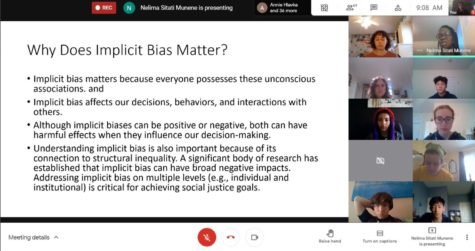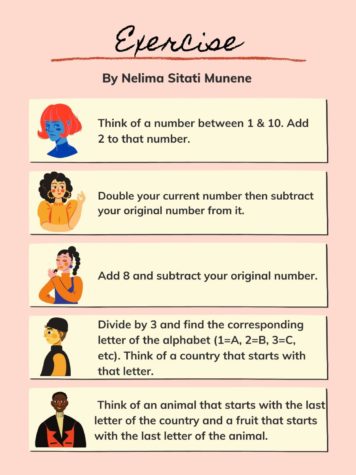Neelima is the executive director of ACER, a nonprofit organization that engages African immigrants living in the north and northwest suburbs of Minneapolis.
Nelima Sitati Munene
Nelima Sitati Munene, director of African Career, Education, and Resource Inc. (ACER), had a session today about unconscious biases.
Unconscious biases, or implicit biases, are something that everyone has, regardless of identity. They can be positive, or negative. Sitati Munene mentioned that it’s very important to understand the implicit biases that we have because they are the foundation of structural inequality. Even if one expresses that they believe something (explicit bias), they can still have a different implicit bias, which is why it’s important that we work to overcome it. It’s important to hold yourself accountable and take your time to acknowledge biases and the ways of thinking that make you. There are online tests that can help you be more aware of the beliefs you have internalized, as well as thinking about what you explicitly believe and how you would justify that to other people and exposing yourself to different narratives and people, not because you want to, but because you need to.

Sitati Munene held an exercise at the beginning of the talk, where you think of a number between one and ten, and perform mathematical operations that ultimately convert it into a country, an animal and a fruit. It was surprising because mostly everybody started with the same number. “When this exercise is done in the United States, […] usually the way this exercise is designed, everybody lands on a four, so everybody lands on the letter D. The most common answer that people give in the United States is Denmark for country, kangaroo for animal, and orange for fruit. There’s a common knowledge and understanding that we have. It shapes our thinking where we think in a collective manner and when we encounter people who have a different experience and are thinking differently, we implicitly react towards them in a different way,” Sitati Munene said.
Even when it comes to the most basic things, our collective unconscious bias is the same as those who grew up having similar beliefs and environments as us.
Try Sitati Munene’s exercise that shows how unconscious bias affects us as a whole below. What were your results?
